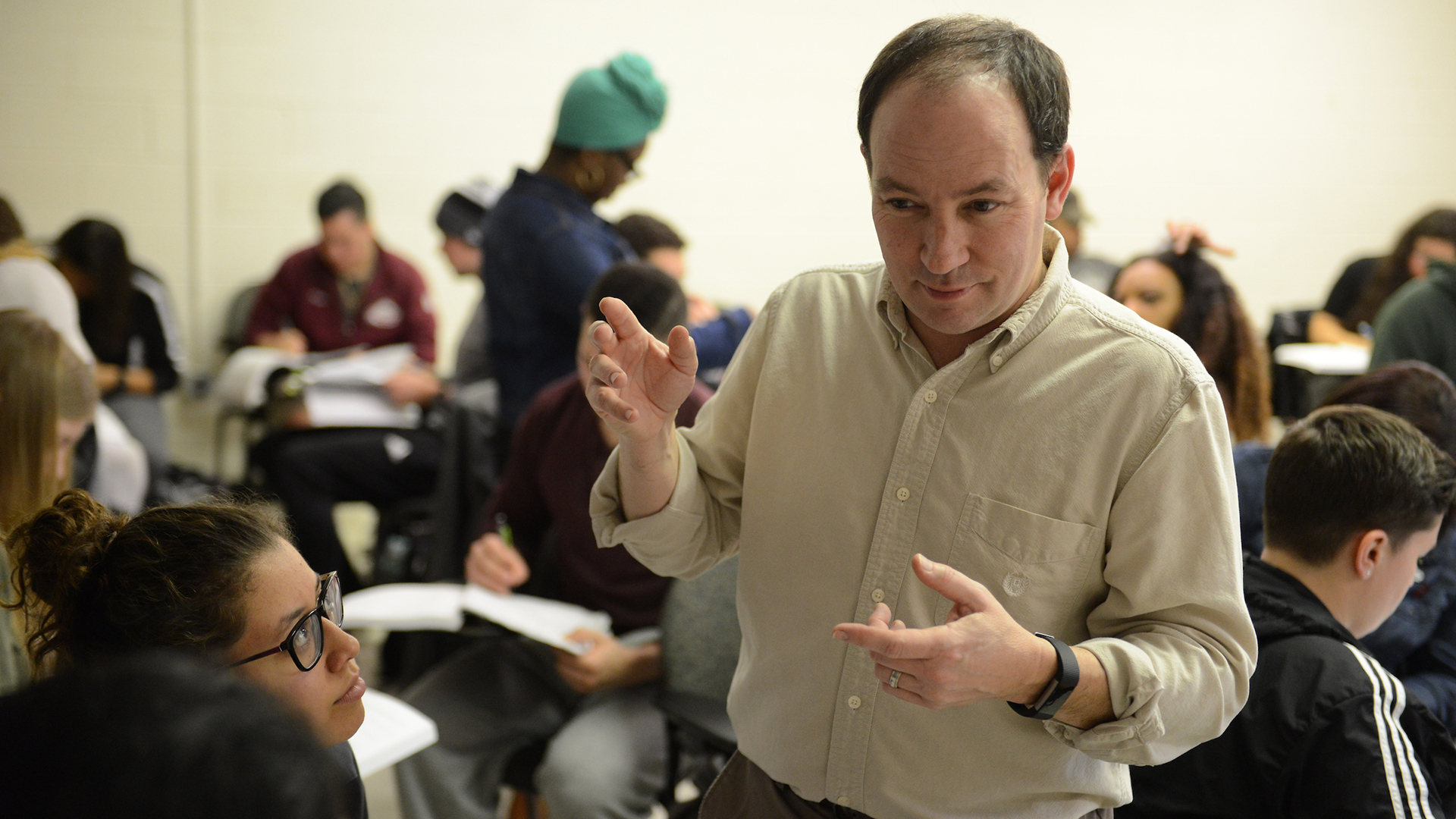Monday, Mar 18, 2019
Dr. Alexander Grushow is committed to fostering student success through POGIL method
by Adam Grybowski
For more than 20 years, Dr. Alexander Grushow has committed his time and energy to the mission of the POGIL Project. POGIL, which stands for Process Oriented Guided Inquiry Learning, is a pedagogy primarily used in STEM education that aims to boost student mastery of the content material.
The underlying insight of POGIL is that students learn better when they engage directly with the material instead of simply hearing it from an instructor. Under the POGIL system, students are broken into self-managed teams, with the instructor acting as more of a facilitator of learning than a source of information. In their teams, students answer carefully crafted lines of questioning to help them develop understanding through discussions with their peers.
Grushow, who is the chair of Rider University’s Department of Chemistry, Biochemistry, and Physics in the College of Liberal Arts and Sciences, points to his personal experience and published evidence that POGIL works.
“My own experience has been that students respond well to this because they’re actively engaged during class as opposed to listening to a lecture,” he says. “So many students will say they understand what a lecture was about, but then struggle when it comes time to process the material from the lecture in the form of homework or assessments like quizzes and exams.”
Grushow’s advocacy for POGIL has included facilitating regional workshops, serving on the steering committee overseeing the project’s growth and development, and co-authoring materials used to guide student learning.
“The POGIL Project believes that leaders such as Dr. Grushow are key to the success of the Project, and assuming this leadership role requires individuals who are committed to the project’s mission, vision and values,” Marcy Dubroff, POGIL’s associate director, wrote in a recent letter to the University. “Professor Grushow admirably achieved these goals and we are looking forward to working with him as the Project continues to grow and evolve.”
Grushow says even before becoming engaged with POGIL he was already investing in using guided inquiry in his classroom. Such carefully designed activities and worksheets dovetailed with the work of the POGIL Project.
“A lot of science classes tend to be material-driven, where students need to know a body of concepts to move on,” Grushow says. “A lot of evidence exists that just giving students information doesn’t generate understanding. You want students to draw connections and perceive relationships in the material and utilize that understanding to go on to the next step. Using POGIL methods helps students to develop these connections in the classroom.”
The POGIL Project is based at Franklin & Marshall College in Lancaster, Pa., which is also where Grushow received a bachelor’s degree in chemistry. However, the POGIL Project developed years after he graduated. As his former professors and mentors kept him abreast of the developing project, Grushow began bringing the methods into his own classroom. POGIL began specifically for students of chemistry but it has grown to encompass many STEM fields as well as the humanities. It is used in high schools as well as colleges and has international reach, says Grushow.
Although Grushow’s father was also a college professor, it was a high school science project that set him on his path to science and academia. He received attention in the local newspaper (he grew up in Lancaster, Pa.) for his science fair project, a study of how the polystyrene polymer in a disposable cup degraded over time.
After he finished his doctorate at the University of Minnesota, Grushow worked as a postdoc at the University of Nevada, Reno and then returned to the East Coast to begin working at Rider, where he has spent the past 23 years. Of his work as an educator during that time, Grushow says, “The goal is student development — not just in chemistry but as learners in general.”

